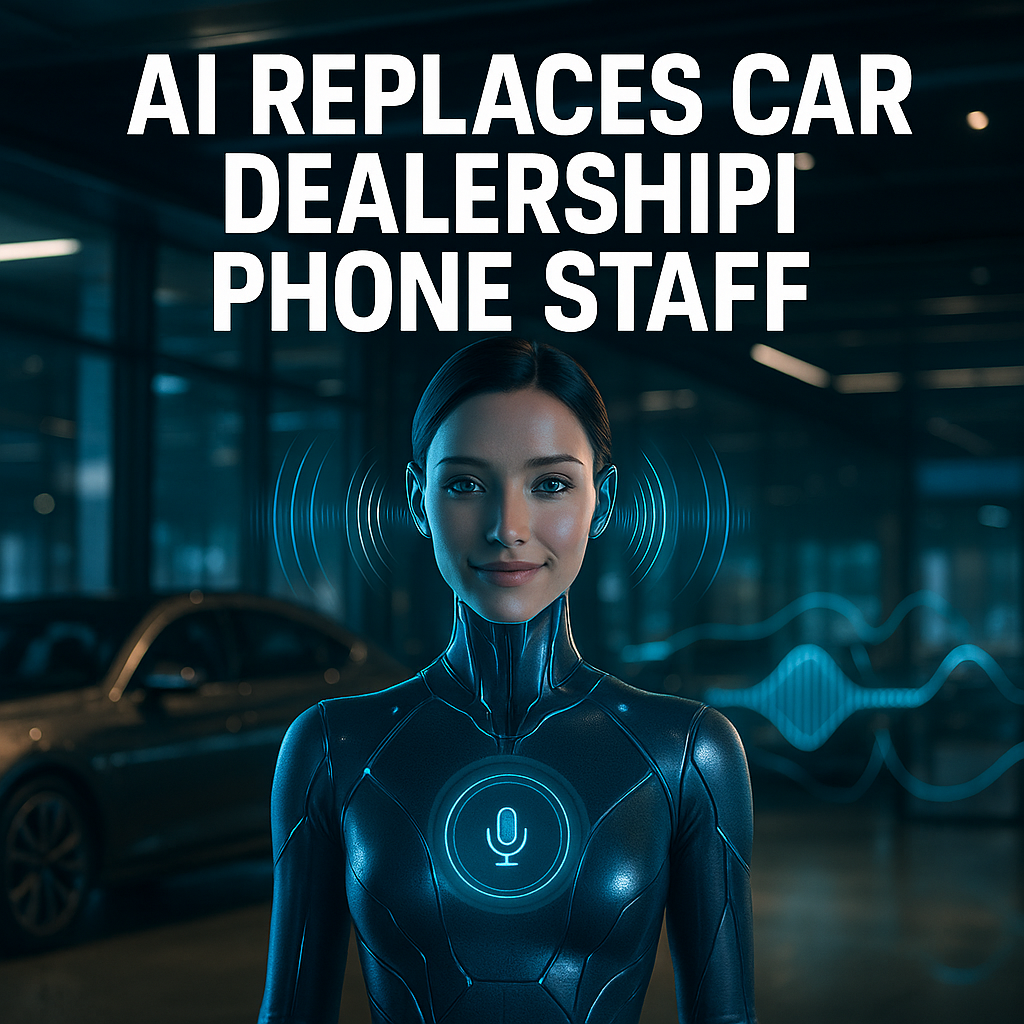
Car Dealerships Are Replacing Phone Staff With AI Voice Agents copy
# The AI Revolution in Car Dealerships: A Game Changer for Efficiency and Customer Experience
The automotive industry is undergoing a remarkable transformation. At the heart of this evolution lies a significant shift towards AI adoption, most notably with AI voice agents replacing human staff in car dealerships. As this transition unfolds, it begs the question: Are human voices becoming obsolete in the customer service domain of the automotive sector?
## From Healthcare to Automotive: Toma’s Strategic Shift
When the team behind Toma, an innovative AI voice agent startup, initially launched, their target industries included healthcare and finance. However, it was in the realm of automotive sales where they found desperate demand for their services. To refine their groundbreaking product, founders Monik Pamecha and Anthony Krivonos embarked on a road trip, visiting numerous dealerships across Oklahoma and Mississippi. Their journey wasn’t just about understanding technical requirements; it was about immersing themselves in the culture and daily challenges of their potential clientele. This hands-on approach paid off, leading to $17 million in funding spearheaded by Andreessen Horowitz.
Seema Amble, a partner at a16z, succinctly captured the essence of Toma’s journey: “We invest in a lot of the next-generation of vertical AI companies, a lot of the best founders have just lived and breathed with these customers to understand what’s going on under the hood.”
## AI in Car Dealerships: The New Norm
Toma isn’t alone in this race to integrate AI into car dealerships. A study by Fullpath revealed that 80% of the 200 dealerships they surveyed had already implemented AI solutions. More intriguing is that 100% of those dealerships reported increased revenues post-AI adoption. However, the specifics of how AI was being utilized weren’t detailed, leaving room for innovations like Toma to carve their niche by offering specialized, automotive-centric AI solutions.
This growth trajectory is not limited to Toma. The industry-wide trend towards AI-driven customer interactions is steadily gaining traction, mainly due to the efficiency and adaptability that AI offers over traditional human-operated systems.
### The Benefits of AI Voice Agents
– **Consistency**: AI ensures that no matter the time of day or the volume of calls, every customer receives the same high level of service.
– **Adaptability**: AI can handle fluctuations in demand seamlessly, scaling up during busy periods and scaling down when it’s quieter without the logistical challenges of staffing adjustments.
– **Efficiency**: AI can manage multiple calls simultaneously and with precision, allowing for more streamlined operations.
Yossi Levi, a notable automotive influencer and one of Toma’s investors, highlights the significance of AI in handling the unpredictable nature of call volumes: “Sometimes you’re overwhelmed with demand. Other times there’s not enough demand, and matching staffing and properly training that staff for a consistent experience is just not an easy thing to do.”
## Learning from the Past: The Importance of Getting AI Right
While the potential of AI in revolutionizing car dealership operations is immense, it’s crucial to recognize the importance of precision and oversight in AI deployment. AI voice agents must be meticulously programmed to avoid costly errors, as evidenced by an incident with a Chevy dealership where an AI, left unchecked, sold a car for just $1 due to a customer exploit.
This anecdote serves as a reminder — and a cautionary tale — about the need for rigorous testing and constant monitoring of AI systems to ensure they operate within acceptable parameters.
## The Human Element: Will Customers Embrace AI?
Despite the technological advancements and operational benefits, one fundamental question remains: How do customers feel about interacting with AI instead of humans? The answer isn’t straightforward. While some may appreciate the efficiency and availability of AI, others might miss the personal touch that human interactions provide.
For AI to be truly successful in customer service roles, it must not only replicate but enhance the human experience. This involves creating AI systems capable of understanding context, empathizing with users, and seamlessly integrating into existing customer service workflows.
## Conclusion: The Future of Automotive Customer Service
As the automotive industry continues to embrace AI, dealerships are rapidly transforming into technologically advanced hubs. The advent of AI in this space is more than just a trend — it’s a fundamental shift in how customer service is delivered. However, as with all innovations, its success hinges on thoughtful implementation and ongoing adaptation to meet customer expectations.
The AI revolution in car dealerships prompts us to reflect: How can we balance technological efficiency with the human touch? As the lines between virtual and human interactions blur, the answer to this question may very well shape the future of customer service across all industries.


